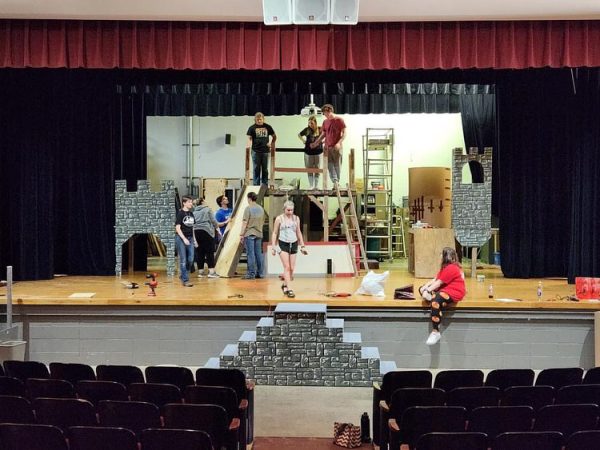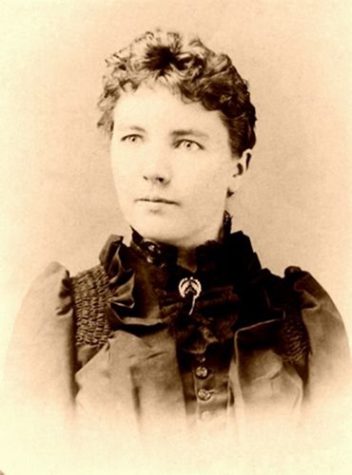Fandoms
When considering our generation, people must acknowledge that ours is the first one to utilize many different technologies. We were raised with the infinite knowledge of a Google search and mini-computers in our pockets. Considering the growth of technology, it should not be much of a surprise that our ability to connect with more people has gone up too. This connectedness has resulted in the spawning of the fandom.
Fandom is not really a new idea–it’s essentially a group of people sharing a common interest who come together to appreciate said interest. If we use this definition, it could be argued that Christianity is a fandom of the teachings of Jesus Christ, or that sports fans are in a fandom of their team. However, the modern idea of a fandom usually involves an online community with the object of focus being some type of media. The community usually writes fan fictions, creates artwork and discusses their object of interest.
“I would describe fandom as one’s true love. Or at least sharing something that you love with a community of people who love it just as much if not more. What being in a fandom means to me is that I am taking my appreciation to a new level, more than just liking something; I’m placing myself in it or becoming a part of it. I think it brings a new light on it; fandoms add another dimension of appreciation to something. They bring expansions of universes and topics of discussion and information, ” junior Cody Santogrossi, who belongs to the fandoms of Doctor Who, My Little Pony, Star Wars, various animes and the Steampunk genre, said.
As the internet and technology grow, so do fandoms. What this means is that fandoms are becoming more commonplace than ever. The fact that Rolla High school has its own anime club is a testament to this.
“I think that the high schools anime club has contributed to fandoms in sense that it brings a new level of acceptability to a high school setting. When it first started, I remember seeing teacher after teacher refuse to sponsor it in fear of having a bunch of nerds in their classroom all the time doing weird anime things. I think that having a group of people who are tangible and come out and say they are a part of it brings fandoms more into the realm of peoples everyday lives. Furthermore, for people who enjoy anime already in their homes, they can come out with their appreciation for anime and become social with it. They can enjoy it with others who enjoy it and accept it. Like I said, in a high school setting, it really just makes the presence of fandoms easier to see,” Santogrossi said.
As fandoms become more common and accepted in American culture, you can likely expect to see more individuals joining as fandoms become a part of many more people’s lives.
“I wouldn’t say everyone should join a fandom, but I think fandoms are fun and they have brought a lot of happiness into my life. I don’t think everyone would enjoy being in one, but there are probably some people out there who haven’t tried one but would really like it. I would say to people that if they’re bored and don’t have anything to do, try a fandom. Talk to people about a show or movie that you like; it could be really interesting,” sophomore Jeremy Dalton, who belongs to the My Little Pony, Doctor Who and Star Wars fandoms. “I don’t know if it’s more accepting or understanding, but they are growing a lot. More and more people probably know what something is because they have a friend who likes one, or they have personally experienced a fandom. There’s conventions and stuff now that has just helped everything grow a lot. Although, I think it’s pretty hard to be in a fandom in Rolla just because it’s a small town in the midwest and a smaller school so nobody really understands it because the whole idea of fandom is just really different from the culture here. I think that it is getting better, because the shows are cool and they are growing and becoming more widespread. This just causes more people to come into contact with them more frequently. Then they see that the shows are cool so they just, get into it,” junior Claudia Kim, who belongs to around thirty different anime fandoms, said.
People may underestimate a fandom as a group of people simply liking something. However, for some people in fandoms, their appreciation goes beyond liking something, with some methods of expressing their appreciation getting a little unconventional.
“Some fandoms can get crazy. Like, what comes to my mind is people who will go to chat rooms and role-play as a character, talk like that character and make decisions like they would. It sounds weird to outsiders, but I can kind of understand why, because some animes just grab your emotions and you find yourself getting attached to characters and feeling very personal towards them. Then sometimes they die and you’re just depressed; it ruins your day. When that happens to me I really do get all moody and sad for a couple of days,” sophomore Sarah Butler, who is in various anime fandoms, said.
There’s no doubt that there is a “nerdy” stigma associated with fandoms, but there is reason to believe that stigma is pretentious and fading away.
“I would say there is a stigma simply because when you think of sports, you don’t think of all the fans as being in a fandom, but when you think of, for example, Star Wars fandoms, you think of nerds hunched over a computer screen and carrying lightsabers with them everywhere. I think the stigma varies based on what you’re interested in. Star Wars is a bad example because it’s pretty common now, but obscure animes or steampunk do have the stigma,” Santogrossi said.
In many fandoms, a crucial part of contribution and appreciation is done through fan fictions, which is essentially a fan writing a non-canon story with the object of adding to the communities appreciation.
“I’m writing a My Little Pony fan fiction called Carmino. In the story, Pea Gravel has been trying to find out who or what Carmino is. She had been wandering for some time. She had become lost in the desert and was on the verge of death. Memories of a not too distant past burned in her young mind. She has an encounter with something she never wanted to meet again but she finds more than what she thought. New friends and new enemies. To me, fan fictions add to the fandom. They are used to express what the people in the fandom can actually do and My Little Pony is no exception. In fact its probably the best example of fan fics. I can’t think of another fandom with such a diverse set of fictions, art or animation. Most of it is great, other are sub-par as most fandoms go. Then you have the ‘other’ stuff, art and fictions that deal with very adult themes and stick out like a sore thumb compared to the rest of the fandom. So stories made by the fans are the lifeblood of a fandom but can also be its downfall,” Dillon Swift, who belongs to the My Little Pony fandom, said.
While the behavior and methods of expression for some people in fandoms can seem to be weird, it is a part of the changing society that is shaping itself around technology. Weird or not, fandoms mean a lot to their members and are really just people having fun by talking with others who share their interests.
“Fandoms are kind of just a way for me to express myself and be as crazy as I want to in ways that I can’t be in my real life. If something in an anime I follow happens, like a crazy plot twist or a character dies or something that makes me excited happens, I can’t get up and scream or get really mopey because that just doesn’t belong in the real world. But in fandoms you can do whatever you want and act how you’re feeling,” Kim said.
Whether you agree with fandom culture or not, it is here to stay and grow. One must also find their dedication and ability to stand up to judgment admirable as well.
“I guess it is nerdy, but I’m okay with that. I don’t think anything’s wrong with being in a fandom. I enjoy them a lot; they’re fun. If some people don’t like that I do it, then whatever. That’s just their opinion,” Dalton said.







